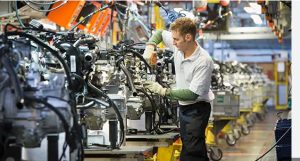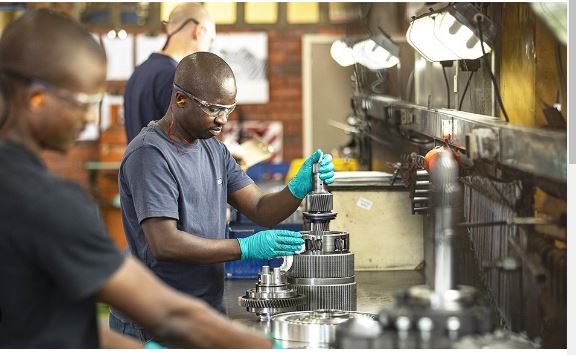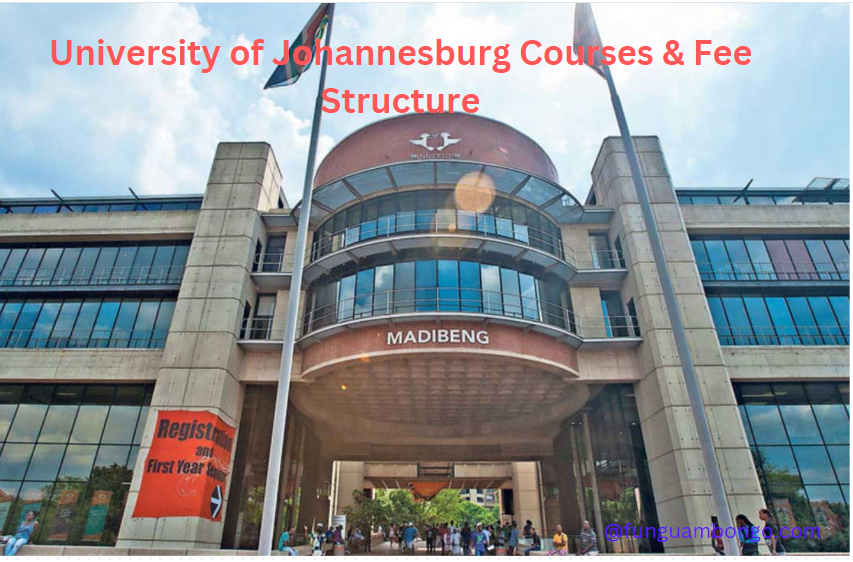Industrial manufacturing jobs in South Africa are an essential part of the country’s economy. According to Indeed, the industrial manufacturing sector is one of the largest employers in the country. It is responsible for producing a wide range of products, from food and beverages to textiles and automotive parts. The sector is also a significant contributor to the country’s GDP.
Industrial Manufacturing Jobs in South Africa
Despite the challenges facing the manufacturing sector in South Africa, there are still many opportunities for growth and development. The industry is constantly evolving, with new technologies and innovations emerging all the time. As a result, there is a growing demand for skilled workers who can adapt to these changes and help drive the industry forward.
Key Takeaways
- Industrial manufacturing is a critical sector of the South African economy, responsible for producing a wide range of products and contributing significantly to the country’s GDP.
- Despite the challenges facing the manufacturing sector, there are still many opportunities for growth and development, particularly in areas such as technology and innovation.
- Skilled workers are in high demand in the manufacturing sector, and there are many education and training programs available to help individuals develop the skills and qualifications they need to succeed in this field.
Overview of Industrial Manufacturing in South Africa

South Africa is a country with a diverse economy, and industrial manufacturing is one of its key sectors. The country has a well-developed infrastructure, a skilled workforce, and abundant natural resources. Industrial manufacturing in South Africa is a major contributor to the country’s economy, providing jobs and driving economic growth.
The industrial manufacturing sector in South Africa is made up of various sub-sectors, including automotive, chemical, food and beverage, and pharmaceuticals. The automotive sector is one of the largest sub-sectors, with major global players such as BMW, Ford, and Toyota having a presence in the country. The chemical sector is also significant, with companies such as Sasol and Dow Chemicals operating in the country.
The food and beverage sector is another important sub-sector, with companies such as Coca-Cola, Nestle, and Unilever having a presence in the country. The pharmaceutical sector is also growing, with companies such as Aspen Pharmacare and Adcock Ingram operating in the country.
The industrial manufacturing sector in South Africa faces a number of challenges, including high energy costs, competition from other countries, and a shortage of skilled workers in certain areas. However, the sector continues to grow and remains an important contributor to the country’s economy.
Overall, the industrial manufacturing sector in South Africa is a vital part of the country’s economy, providing jobs and driving economic growth. With its skilled workforce, abundant natural resources, and well-developed infrastructure, the sector is well-positioned to continue to grow and contribute to the country’s economic development.
Key Industrial Manufacturing Sectors
South Africa has a diverse economy, but industrial manufacturing is one of the key sectors that drives the country’s economic growth. According to Adcorp Group, the manufacturing sector is the fourth largest industry in South Africa, contributing significantly to GDP growth and creating direct employment opportunities.
Here are some of the key industrial manufacturing sectors in South Africa:
Automotive Manufacturing
The automotive manufacturing sector is one of the most significant contributors to the South African economy, accounting for approximately 7% of the country’s GDP. The sector is responsible for the production of a wide range of vehicles, including passenger cars, commercial vehicles, and heavy-duty trucks. Some of the leading automotive manufacturers in South Africa include Toyota, Volkswagen, and Ford.
Chemical Manufacturing
The chemical manufacturing sector is another key industrial sector in South Africa, contributing to the country’s economic growth and job creation. The sector is responsible for the production of a wide range of products, including petrochemicals, plastics, and fertilizers. Some of the leading chemical manufacturing companies in South Africa include Sasol, Dow Chemicals, and BASF.
Food and Beverage Manufacturing
The food and beverage manufacturing sector is a significant contributor to the South African economy, providing employment opportunities and contributing to the country’s GDP growth. The sector is responsible for the production of a wide range of food and beverage products, including meat, dairy, beverages, and confectionery. Some of the leading food and beverage manufacturing companies in South Africa include Nestle, Coca-Cola, and Tiger Brands.
Metal and Engineering Manufacturing
The metal and engineering manufacturing sector is another key industrial sector in South Africa, providing employment opportunities and contributing to the country’s economic growth. The sector is responsible for the production of a wide range of products, including steel, machinery, and equipment. Some of the leading metal and engineering manufacturing companies in South Africa include ArcelorMittal, Bell Equipment, and ABB.
Overall, these key industrial manufacturing sectors play a vital role in driving South Africa’s economic growth and creating employment opportunities for its citizens.
Also See: Best Companies To Donate Your Car in USA: Top Picks for 2024
Employment Trends in South African Manufacturing
South Africa’s manufacturing sector has been a significant contributor to the country’s economic growth and job creation. According to Statistics South Africa, the manufacturing sector employed over 1.5 million people in 2022, which is approximately 10% of the country’s total employment.
The manufacturing sector in South Africa has experienced a decline in employment over the past few years due to various factors such as the global economic slowdown, the COVID-19 pandemic, and structural challenges within the sector. However, there are still opportunities for growth and job creation within the industry.
One area of potential growth is the green manufacturing sector. The McKinsey Global Institute has identified green manufacturing as a key area for investment in Africa. Green manufacturing is both sustainable and inclusive, making it an attractive option for investors looking to create jobs and promote economic growth.
Another area of potential growth is the adoption of new technologies such as automation and artificial intelligence. These technologies have the potential to increase productivity and reduce costs, making South African manufacturing more competitive on the global stage.
South Africa’s government has also taken steps to support the manufacturing sector. For example, the government has implemented policies such as the Manufacturing Competitiveness Enhancement Programme (MCEP) and the Industrial Policy Action Plan (IPAP) to promote growth and job creation within the industry.
In conclusion, while the manufacturing sector in South Africa has faced challenges in recent years, there are still opportunities for growth and job creation within the industry. Green manufacturing and the adoption of new technologies are two areas that hold promise for the future of South African manufacturing.
Major Industrial Hubs and Regions
South Africa has several major industrial hubs and regions that are home to a diverse range of manufacturing industries. These regions are strategically located to take advantage of the country’s natural resources, transportation infrastructure, and skilled workforce.
Gauteng
Gauteng is the economic heartland of South Africa and home to several major cities, including Johannesburg and Pretoria. The province is known for its manufacturing industries, particularly in the automotive and aerospace sectors. It is also a hub for financial services and technology companies. The automotive industry is a major employer in Gauteng, with companies such as BMW, Ford, and Toyota having manufacturing plants in the province.
KwaZulu-Natal
KwaZulu-Natal is located on the east coast of South Africa and is known for its diverse manufacturing industries. The province is home to the country’s largest port, Durban, which is a major gateway for imports and exports. The manufacturing industries in KwaZulu-Natal include automotive, chemicals, food and beverages, and textiles. The province is also a hub for tourism, with popular destinations such as the Drakensberg Mountains and the beaches of the South Coast.
Western Cape
The Western Cape is located on the southern coast of South Africa and is known for its wine industry and tourism. The province is also home to several manufacturing industries, including aerospace, clothing and textiles, and food and beverages. The city of Cape Town is a hub for technology companies, with several startups and established firms operating in the city.
Eastern Cape
The Eastern Cape is located on the southeastern coast of South Africa and is known for its automotive industry. The province is home to several major automotive manufacturers, including Volkswagen, Ford, and General Motors. The automotive industry in the Eastern Cape is a major employer, with thousands of workers employed in manufacturing plants in the region. The province is also a hub for renewable energy, with several wind and solar power projects in development.
Overall, South Africa’s major industrial hubs and regions offer a diverse range of manufacturing industries, each with its own unique strengths and opportunities. These regions are poised for continued growth and development, making them attractive locations for businesses looking to invest in the country’s economy.
Skills and Qualifications for Manufacturing Jobs
Manufacturing jobs in South Africa require a specific set of skills and qualifications. Candidates who possess these skills and qualifications are more likely to be successful in securing employment in the manufacturing industry.
Skills
Some of the essential skills required for manufacturing jobs include:
- Technical skills: Manufacturing jobs require a high level of technical knowledge and expertise. Candidates must have knowledge of the manufacturing process and the equipment used in the industry. They should also be able to troubleshoot technical issues and identify solutions.
- Problem-solving skills: Manufacturing jobs require candidates to be able to identify and solve problems quickly and efficiently. They must be able to think on their feet and make decisions that will keep the manufacturing process running smoothly.
- Communication skills: Manufacturing jobs require candidates to communicate effectively with their colleagues and superiors. They must be able to convey information clearly and concisely, both in writing and verbally.
- Teamwork skills: Manufacturing jobs require candidates to work closely with their colleagues to achieve common goals. They must be able to work as part of a team and contribute to the success of the manufacturing process.
Qualifications
Manufacturing jobs in South Africa require a specific set of qualifications. Some of the essential qualifications required for manufacturing jobs include:
- Engineering degree: Many manufacturing jobs require candidates to have an engineering degree. This degree provides candidates with the technical knowledge and expertise required to work in the manufacturing industry.
- Diploma in Manufacturing: A diploma in manufacturing provides candidates with the knowledge and skills required to work in the manufacturing industry. This qualification covers topics such as production planning, quality control, and supply chain management.
- Technical certification: Many manufacturing jobs require candidates to have a technical certification. This certification provides candidates with the knowledge and skills required to operate and maintain the equipment used in the manufacturing industry.
Candidates who possess the above skills and qualifications are more likely to be successful in securing employment in the manufacturing industry in South Africa.
Innovation and Technology in Manufacturing
Innovation and technology have been driving the manufacturing industry forward, and South Africa is no exception. With the advancement of technology, manufacturing processes have become more efficient, cost-effective, and environmentally friendly.
One of the significant technological advancements in manufacturing is the use of automation. Automation has revolutionized the manufacturing process, from assembly lines to quality control. It has reduced the need for manual labor, increased production speed, and improved product quality. Automation has also made it possible to manufacture products that were previously impossible to produce using traditional methods.
Another area where technology has made significant strides is in 3D printing. 3D printing has revolutionized the prototyping and manufacturing process, making it possible to produce complex parts with intricate designs. This technology has been used in various industries, including aerospace, automotive, and medical.
In addition to automation and 3D printing, other technologies have been used to improve the manufacturing process. These include artificial intelligence, the Internet of Things (IoT), and big data analytics. These technologies have made it possible to collect and analyze data in real-time, allowing manufacturers to make informed decisions and improve their processes.
Overall, the manufacturing industry in South Africa has embraced innovation and technology, making it more competitive and efficient. As technology continues to advance, we can expect to see more improvements in the manufacturing process, leading to increased productivity and economic growth.
Government Policies Affecting Manufacturing Jobs
The South African government has implemented several policies aimed at promoting industrialization and creating jobs in the manufacturing sector. These policies include:
Industrial Policy Action Plan (IPAP)
The Industrial Policy Action Plan (IPAP) is a government initiative aimed at promoting industrialization and creating jobs in the manufacturing sector. The plan includes various measures such as providing financial support to local manufacturers, promoting exports, and improving infrastructure. The government has also identified several strategic sectors for development, including automotive, clothing and textiles, and agro-processing.
National Industrial Policy Framework (NIPF)
The National Industrial Policy Framework (NIPF) is a comprehensive document that outlines the vision, objectives, and strategic focus areas of the government’s industrial policy. The NIPF aims to promote economic growth, employment, innovation, and social inclusion through various policy instruments and interventions. The framework also emphasizes the importance of promoting local manufacturing and developing a skilled workforce.
Employment Tax Incentive (ETI)
The Employment Tax Incentive (ETI) is a tax incentive aimed at encouraging employers to hire young, inexperienced workers. The incentive provides a subsidy to employers for the first two years of employment of eligible employees. The government hopes that this will encourage employers to hire more young workers, thereby reducing youth unemployment and promoting economic growth.
Black Economic Empowerment (BEE)
Black Economic Empowerment (BEE) is a policy aimed at promoting economic empowerment for previously disadvantaged groups, including black South Africans. The policy includes measures such as preferential procurement, equity ownership, and skills development. The government hopes that this will help to address historical inequalities and promote economic growth.
Overall, the South African government has implemented several policies aimed at promoting industrialization and creating jobs in the manufacturing sector. While the impact of these policies is still being evaluated, they represent an important step towards promoting economic growth and reducing unemployment in the country.
Challenges Facing the Manufacturing Sector
The manufacturing sector in South Africa has been facing a number of challenges in recent years. Some of these challenges include:
1. Lack of Skilled Labor
One of the biggest challenges facing the manufacturing sector in South Africa is the lack of skilled labor. This has been a long-standing issue in the country, and it has been exacerbated by the fact that many young people are not interested in pursuing careers in manufacturing. As a result, many companies are finding it difficult to fill vacancies for skilled workers, which is hampering their ability to grow and expand.
2. Competition from Other Countries
Another challenge facing the manufacturing sector in South Africa is competition from other countries. With the rise of globalization, many companies are now able to outsource their manufacturing operations to countries where labor is cheaper and regulations are less stringent. This has made it difficult for South African manufacturers to compete on price, which has led to a decline in the sector’s overall competitiveness.
3. Infrastructure Issues
Infrastructure issues are also a major challenge facing the manufacturing sector in South Africa. Many companies struggle with power outages, which can disrupt production and lead to significant losses. In addition, the country’s transportation infrastructure is often inadequate, which can make it difficult for companies to move goods around the country and export them to other markets.
4. Regulatory Environment
The regulatory environment in South Africa is also a challenge for the manufacturing sector. Many companies complain that regulations are too complex and burdensome, which can make it difficult for them to operate efficiently. In addition, corruption and bureaucratic inefficiencies can also hinder the growth and development of the sector.
Overall, these challenges are significant, and they will require a concerted effort from both the public and private sectors to address. However, with the right policies and investments, it is possible to overcome these challenges and ensure that the manufacturing sector in South Africa remains a vital contributor to the country’s economy.
Opportunities for Growth in Manufacturing Employment
South Africa’s manufacturing industry is a significant contributor to the country’s economy, providing employment opportunities to millions of people. According to Indeed.com, there are currently many job openings in the manufacturing sector, indicating a growing demand for skilled workers.
One area of opportunity for growth in manufacturing employment is in the production of renewable energy equipment. As the world shifts towards more sustainable forms of energy, the demand for renewable energy equipment is expected to increase. South Africa has abundant renewable energy resources, and the government has set a target of generating 18 GW of renewable energy by 2030. This presents a significant opportunity for the manufacturing industry to produce renewable energy equipment, creating jobs and contributing to the country’s sustainable development.
Another area of opportunity for growth in manufacturing employment is in the production of high-tech products. With the rise of Industry 4.0, there is a growing demand for advanced manufacturing technologies such as robotics, artificial intelligence, and the Internet of Things. South Africa has a well-developed information and communication technology (ICT) sector, which can be leveraged to support the growth of high-tech manufacturing. By investing in advanced manufacturing technologies, South Africa can create high-paying jobs and become a leader in the global manufacturing industry.
Furthermore, South Africa has a highly skilled workforce, with many workers possessing technical skills in engineering, design, and manufacturing. However, there is a need to develop the skills of the workforce further, particularly in emerging areas such as additive manufacturing and nanotechnology. By investing in skills development, South Africa can create a more versatile and adaptable workforce that can support the growth of the manufacturing industry.
In summary, South Africa’s manufacturing industry presents many opportunities for growth in employment. By focusing on renewable energy equipment, high-tech manufacturing, and skills development, the country can create more jobs and contribute to sustainable economic development.
Education and Training Programs
To work in the industrial manufacturing sector in South Africa, individuals need to have a certain level of education and training. Most entry-level positions require at least a high school diploma or equivalent. However, to advance in the industry, individuals may need to pursue further education and training.
There are several education and training programs available in South Africa that cater to the needs of the industrial manufacturing sector. These programs provide individuals with the skills and knowledge needed to succeed in the industry. Some of these programs include:
- Manufacturing & Operations Management Diploma: This three-year program is offered by the Manufacturing Institute of Technology South Africa. The program covers a range of topics, including safety, quality, logistics, and operations management. Individuals who complete this program can pursue careers in manufacturing and operations management.
- Technical and Vocational Education and Training (TVET) Programs: TVET programs are offered by various institutions across South Africa. These programs provide individuals with the skills and knowledge needed to work in various industries, including the industrial manufacturing sector. The programs cover a range of topics, including welding, electrical engineering, and mechanical engineering.
- Skills Programs: Skills programs are offered by various institutions across South Africa. These programs provide individuals with the skills needed to work in specific areas of the industrial manufacturing sector. Some of the skills programs available include assembling and finishing manufacturing goods, improving productivity, and quality control.
Overall, there are several education and training programs available in South Africa that cater to the needs of the industrial manufacturing sector. These programs provide individuals with the skills and knowledge needed to succeed in the industry.
Job Market Outlook for Industrial Manufacturing
South Africa has positioned itself as a prime manufacturing hub on the African continent, with its industrial manufacturing industry serving as a crucial multiplier of economic growth, an engine of development, and a significant contributor to the country’s GDP. According to the Quarterly Employment Statistics (QES) survey released by Statistics South Africa (Stats SA), total employment in the formal non-agricultural sector increased by 31,000 in the third quarter of 2023, bringing the level of employment to almost 10.2 million. The survey showed that 256,000 jobs were added between September.
The job market outlook for industrial manufacturing in South Africa is promising. The country’s manufacturing sector is concentrated in the metal, petrochemical, automotive, and food industries. Together, these industries account for around 70% of real output, 74% of fixed capital stock, and 65% of exports from the manufacturing sector between 1994 and 2018. As per a report by McKinsey & Company, the “Manufacturing in Africa” initiative aims to increase foreign-direct-investment (FDI) flows into the manufacturing sector in Africa, with a particular focus on green manufacturing.
The manufacturing industry is expected to continue to grow, with a particular focus on high-tech manufacturing, such as 3D printing, robotics, and automation. The adoption of Industry 4.0 technologies is essential for the growth of the manufacturing industry in South Africa. According to a press release by PwC South Africa, “SA’s manufacturing sector must increase 4IR tech adoption or risk falling behind global competitors.”
In conclusion, the job market outlook for industrial manufacturing in South Africa looks promising, with a focus on high-tech manufacturing and the adoption of Industry 4.0 technologies. The government and private sector should continue to invest in the manufacturing industry to ensure its growth and sustainability.
International Influence on South African Manufacturing
South Africa’s manufacturing sector has been heavily influenced by international trade and foreign investment. The country’s manufacturing industry has been shaped by global trends, such as the rise of China as a manufacturing powerhouse and the increasing importance of the African continent as a market for manufactured goods.
Foreign investment has played a major role in the growth of South Africa’s manufacturing industry. According to a report by McKinsey & Company, foreign direct investment (FDI) in Africa’s manufacturing sector has increased significantly in recent years, with South Africa being one of the top destinations for FDI. The report notes that FDI in Africa’s manufacturing sector has the potential to create jobs, boost economic growth, and promote sustainable development.
Foreign companies have also contributed to the development of South Africa’s manufacturing industry by bringing in new technology, expertise, and management practices. For example, German car manufacturer Volkswagen has invested heavily in its South African operations, which have become a major hub for the company’s global supply chain.
However, the influence of international trade and investment on South Africa’s manufacturing industry has not been entirely positive. The country has struggled to compete with low-cost manufacturing countries such as China and India, which has led to the closure of many local manufacturing firms. South Africa’s manufacturing sector has also been affected by global economic downturns, such as the 2008 financial crisis, which led to a decline in demand for manufactured goods.
Despite these challenges, South Africa’s manufacturing industry remains an important contributor to the country’s economy. The industry has the potential to create jobs, promote economic growth, and contribute to sustainable development, provided that it can overcome the challenges posed by international competition and global economic trends.
Sustainability and Green Manufacturing Initiatives
South Africa is increasingly embracing sustainability and green manufacturing initiatives in its industrial sector. The country’s government has set ambitious targets to reduce carbon emissions and promote sustainable manufacturing practices. As a result, many manufacturing companies in South Africa are investing in sustainable production processes and technologies that help reduce their carbon footprint.
One notable initiative is the Energy Management System (EnMS), which was introduced in industrial companies in South Africa to reduce energy costs and cut down on emissions. According to a report by the United Nations, EnMS has been successful in reducing energy consumption and improving energy efficiency in many companies. This initiative has also helped companies to comply with South Africa’s carbon tax legislation, which was introduced in 2019 to encourage companies to reduce their carbon emissions.
Another initiative is the Green Manufacturing Initiative (GMI), which was launched by the Department of Trade and Industry to promote sustainable manufacturing practices in South Africa. The GMI aims to create a sustainable manufacturing industry in South Africa that is competitive, innovative, and environmentally responsible. The initiative provides support to manufacturing companies to help them adopt sustainable production processes and technologies.
South Africa is also investing in renewable energy to reduce its dependence on fossil fuels. The country has abundant solar and wind resources, and the government is encouraging the development of renewable energy projects. According to a report by McKinsey & Company, Africa’s green manufacturing crossroads, South Africa has the potential to become a leader in renewable energy in Africa. The report suggests that the country can reduce its carbon emissions by up to 30% by 2030 by investing in renewable energy.
In conclusion, South Africa is taking significant steps towards sustainability and green manufacturing in its industrial sector. The government’s initiatives and targets are encouraging manufacturing companies to adopt sustainable production processes and technologies. The country’s abundant renewable energy resources also provide opportunities for companies to reduce their carbon footprint and become more environmentally responsible.
See Also: Top 5 Best Insurance Companies in California-USA: Our Recommendations
Case Studies of Successful Manufacturing Careers
South Africa has a diverse manufacturing sector that offers numerous opportunities for growth and success. Here are some case studies of successful manufacturing careers in South Africa:
1. Nolitha Fakude
Nolitha Fakude is a successful South African businesswoman who started her career in the manufacturing industry. She worked for companies such as Sasol and Anglo American before becoming the CEO of Sasol Oil in 2005. Fakude is known for her leadership skills and her ability to drive growth and innovation in the manufacturing sector.
2. Sipho Pityana
Sipho Pityana is another successful South African business leader who started his career in the manufacturing industry. He worked for companies such as AngloGold Ashanti and served as the CEO of Izingwe Holdings before becoming the Chairman of AngloGold Ashanti. Pityana is known for his strategic thinking and his ability to navigate complex business environments.
3. Dr. Precious Moloi-Motsepe
Dr. Precious Moloi-Motsepe is a successful South African entrepreneur who started her career in the fashion and manufacturing industry. She founded the African Fashion International (AFI) in 2007, which is now one of the leading fashion events in Africa. Moloi-Motsepe is known for her innovative approach to business and her commitment to empowering women in the manufacturing sector.
These case studies demonstrate that there are many opportunities for success in the manufacturing industry in South Africa. With the right skills, education, and experience, anyone can build a successful career in this sector.
Frequently Asked Questions
What qualifications are needed for entry-level industrial manufacturing jobs?
Entry-level industrial manufacturing jobs typically require a high school diploma or equivalent. Some positions may require additional technical training or certification. Candidates with experience in manufacturing or related industries may have an advantage in the hiring process.
How can one find urgent factory worker job openings in South Africa?
Job seekers can find urgent factory worker job openings in South Africa by searching online job boards, company websites, and local classified ads. Networking with industry professionals and attending job fairs may also be helpful.
Which are the leading manufacturing companies to work for in South Africa?
Some of the leading manufacturing companies to work for in South Africa include Unilever, Sasol, and Nestle. These companies offer competitive salaries, benefits, and opportunities for career growth.
What are the highest paying positions within the manufacturing sector?
The highest paying positions within the manufacturing sector include engineering managers, operations managers, and technical directors. These positions require advanced education and experience in the field.
How does the demand for manufacturing jobs in South Africa currently trend?
The demand for manufacturing jobs in South Africa is currently stable, with some growth in specific industries such as automotive and food production. However, competition for jobs can be high, and candidates may need to have specialized skills or experience to be competitive in the job market.
What are the long-term career prospects in the manufacturing industry?
The manufacturing industry offers a range of long-term career prospects, including opportunities for advancement into management positions, technical roles, and specialized fields such as quality control and logistics. Continuing education and training can help individuals stay competitive and advance their careers within the industry.













Leave a Reply
View Comments